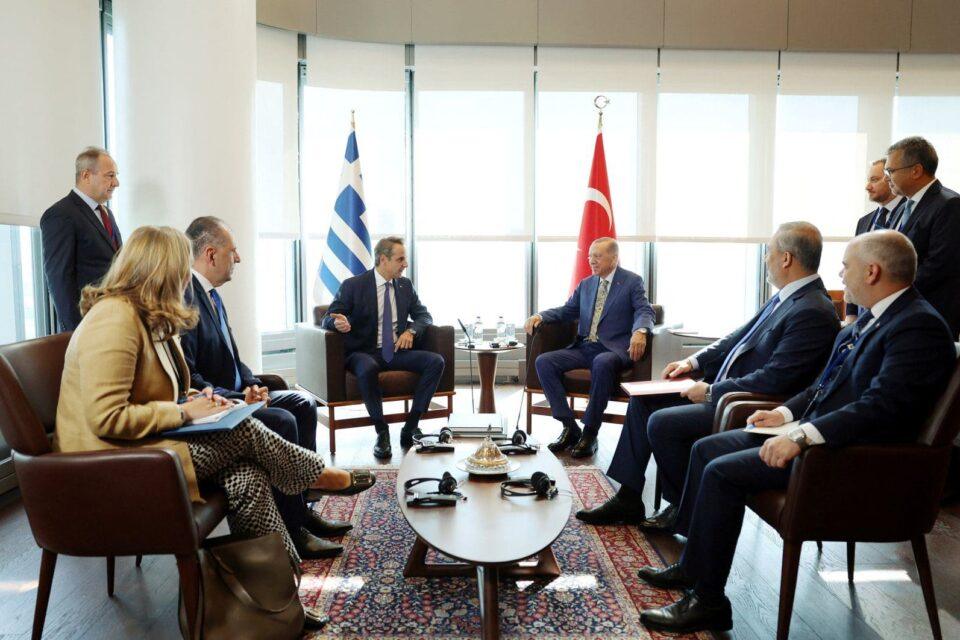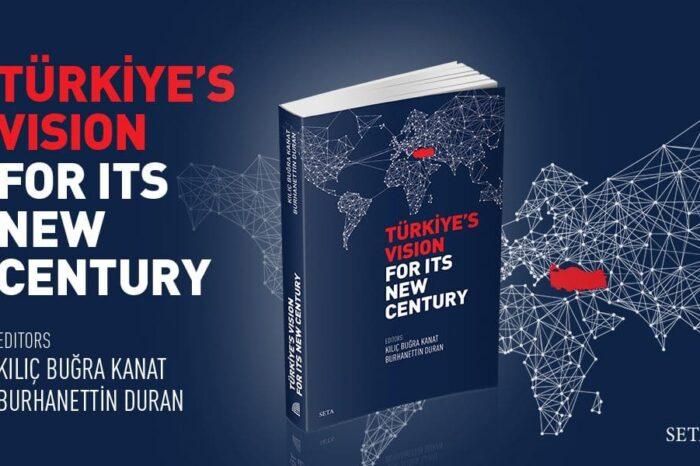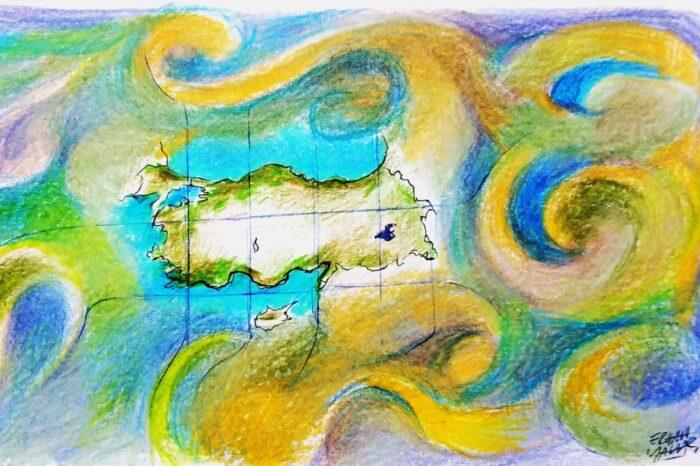Erdoğan’s Netanyahu, Mitsotakis meetings: New stage at normalization

President Recep Tayyip Erdoğan’s trip to New York highlighted the question of United Nations reform anew.
With U.N. Secretary-General Antonio Guterres and U.S. President Joe Biden conceding that the organization has ceased to function properly, it becomes clear that the Turkish leader’s long-standing arguments (“The world is bigger than five” and “A fairer world is possible”) have gained a foothold.
It remains unlikely, however, that any reforms will be enacted since the Security Council’s permanent members disagree amid the current international circumstances.
Keeping in mind that the Ukraine war deepened the great power competition, it goes without saying that we remain miles away from any agreement. Nonetheless, Erdoğan must keep calling for a “new international order” – an example of pioneering leadership for the world of tomorrow.
Normalization with Greece, Israel
Two of the Turkish president’s meetings in the U.N. General Assembly’s margins attracted special attention: Israeli Prime Minister Benjamin Netanyahu and Greek Prime Minister Kyriakos Mitsotakis. Since Erdoğan met his Egyptian counterpart, Abdel-Fattah el-Sissi, at the G-20 summit in New Delhi, India, it is possible to argue that Türkiye’s normalization policy has reached a new stage of cooperation.
According to sources, Erdoğan’s meeting with Netanyahu went extremely well, and the two leaders intend to visit each other’s country soon. They reportedly discussed energy, technology, innovation, artificial intelligence, cybersecurity, increasing bilateral trade, as well as Palestine and regional cooperation. It is no secret that the Turkish president also engages in a productive “phone diplomacy” with Israel’s Isaac Herzog.
Suppose Ankara’s sensitivities around Jerusalem and Palestine receive due consideration. In that case, it might be possible for Erdoğan and Netanyahu to reap the benefits of leader-to-leader diplomacy – which would impact the balance of power in many nearby regions, including the Eastern Mediterranean. After all, all regional players are attempting to complete normalization and consolidate their new bilateral and trilateral cooperations.
U.S.-China rivalry affects the region
It goes without saying that every single country knows about the new global disorder. The rivalry between the U.S. and China impacts Türkiye’s neighborhood in the form of proposed corridors. At this time, the relations between Türkiye, Israel and Greece relate to competition as well as cooperation in many fields, including energy, logistics and security. In the end, those nations that act fast and develop concrete projects will be able to create longer-lasting equilibria.
President Erdoğan’s meeting with Mitsotakis was “productive” as well. Having de-escalated tensions, both leaders were reelected and aim to take concrete steps to build confidence between Türkiye and Greece. The High-Level Cooperation Council, which will meet for the first time in seven years on Dec. 7, might mark the beginning of a new chapter.
It would be easier for the two countries to tackle challenging issues like the Aegean and the Eastern Mediterranean if they work together on disasters, environmental issues and wildfires, promote cultural exchanges, and join forces against illegal migration.
Provided that the most serious bilateral challenges, including the delimitation of maritime jurisdictions, call for “difficult” agreements, the sheer existence of council meetings, bilateral contacts and proposed solutions would certainly contribute to Turkish-Greek relations.
Let me repeat that those parties that carefully monitor the impact of great power competition on the region and transform normalization efforts into concrete cooperation plans stand to benefit. That is exactly what Türkiye has been doing.
Daily Sabah, September 24, 2023























